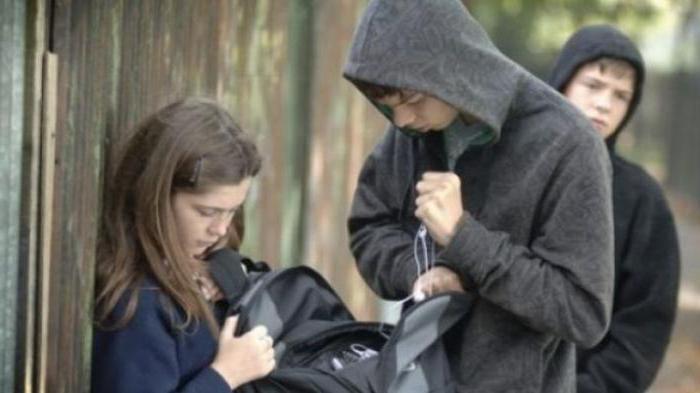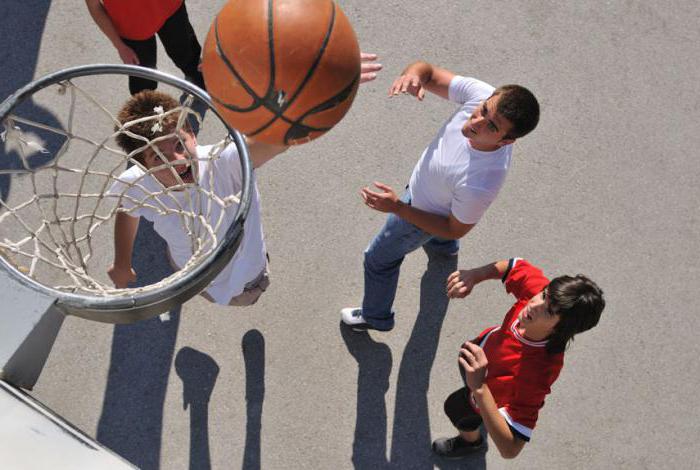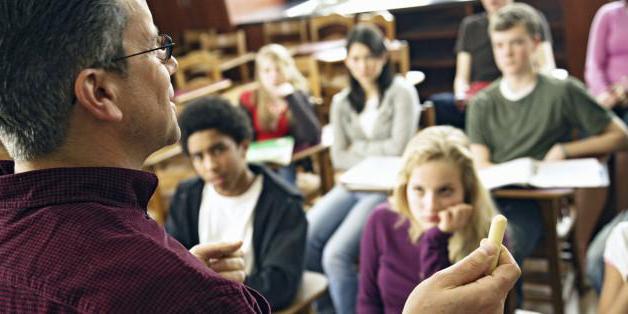One of the most complex and at the same time controversial problems of modern society is the problem of offenses in the teenage environment. Unfortunately, at a young age, not every person is able to realize that the misconduct committed by him entails serious and sometimes difficult to correct consequences.
Concept of offenses
What does this term include? Under the offense is understood the guilty behavior of a person that causes harm to others, contradicts the existing legislative norms in society and is capable of entailing a certain legal liability.
There is a certain classification of such actions. They are divided into two groups. The first of these is misconduct. This type of offense can be labor and disciplinary, civil and administrative. The second group includes crimes. These are acts that result in a violation of criminal law. In turn, crimes are distinguished by severity.
 Depending on a particular type of offense committed, there is also a certain liability. She may be:
Depending on a particular type of offense committed, there is also a certain liability. She may be:
- criminal - for violation of laws, as provided for in the Criminal Code;
- administrative, in violation of the rules contained in the Code of Administrative Offenses;
- disciplinary, that is, entailing liability for violations of labor law;
- civil law, regulated property relations.
Pedagogical task
Work with students in school is a multi-faceted process, very complex and lengthy in its period. At the same time, the teaching staff of educational institutions is given a rather specific task, namely the prevention of delinquency and crime among minors. Conversation in the process of such events is the most effective way to prevent situations when a person commits a guilty act.
But besides this, the school should provide all the opportunities for the normal development of children to be carried out. The task of the teacher is to identify students who are prone to violations of moral standards. In this case, it is important to study the individual characteristics of such children, as well as the reasons for the moral deviation of the personality.

If such events are carried out on time, then this will allow, on the basis of properly organized educational assistance, to prevent situations leading to misconduct or offenses.
Problem children
Teens prone to commit misconduct, as a rule:
1. Avoid studying for reasons of poor progress in a large number of subjects, focus on other activities, lag behind in intellectual development, and also have no interest in the process of cognition.
2. They show low social and labor activity in the form of refusal of assignments, neglect of cool things, and demonstrative ignoring of the performance of labor matters. In addition, such students neglect public property, dealing with its corruption.
3. Differ in such negative manifestations as the use of toxic, psychotropic drugs and alcohol. Such adolescents, as a rule, have a craving for gambling.
4. Negatively assess the surrounding reality.
five.They have increased criticality towards adults and teachers in the form of rudeness, absenteeism, theft and various unmotivated acts.
6. Indifferent or skeptical of educational activities.
Early prevention of offenses is a combination of measures whose purpose is the following:
- Improving the living conditions of children;
- the establishment and suppression of the action of sources that have an antisocial influence;
- Conducting a conversation on the prevention of juvenile delinquency.
Organization of the educational process by the class teacher
To date, statistics on offenses are not encouraging. Of all the crimes, one in eleven is committed by adolescents. And this behavior is influenced by many negative factors, both external and internal.
 That is why conversations on the prevention of juvenile delinquency are sometimes timely and qualified help to children, as well as their families who are in crisis social and other situations.
That is why conversations on the prevention of juvenile delinquency are sometimes timely and qualified help to children, as well as their families who are in crisis social and other situations.
At the beginning of the study period, the class teacher is tasked with the following:
- creating conditions conducive to the social adaptation of pupils;
- assisting in solving problems facing a teenager;
- the formation of positive values in children in relation to study, society, people, work, oneself, as well as to the laws and standards of society;
- the provision of qualified pedagogical assistance to the student’s family in raising a child.
Realization of all these tasks is possible with the help of observations and testing, behavior analysis and counseling, questionnaires, diagnostics and group work. One of the forms of such activity is the conversation held by the teacher on the prevention of juvenile delinquency.
For the normal development of the personality of each child and the education of the student, it is important for the class teacher to adhere to:
- humane style of relations between participants in the educational process;
- democratic principles of communication with pupils;
- a reasonable order and discipline;
- The principle of the possibility for the manifestation of children's initiative, which must be supported by the teacher.
Conversations on the prevention of juvenile delinquency should be conducted systematically. Moreover, their subject matter is coordinated with a pre-compiled action plan.
Conversations on the prevention of juvenile delinquency at school are held as part of:
- preventive work;
- organization of leisure activities;
- work with parents;
- legal universal education;
- organization of vacations;
- work with difficult children.
Class teachers at the beginning of the school year create a passportization of families. The teacher identifies difficult children and creates a databank of students who find themselves in a difficult life situation, as well as families in which they are socially dangerous. Such work is being done to assist them.
Addressing children's knowledge gaps
The most important element of the system for preventing asocial behavior of schoolchildren is constant monitoring of academic performance. These are very effective steps, during which the prevention of juvenile delinquency at school is carried out. A conversation with the parents of students who have knowledge gaps allows us to timely eliminate this problem. In addition to such information, the class teacher conducts individual work with his students, while attracting successful students and other teachers. In addition, it is important for the teacher to attend classes of their children in various subjects. It will also be the prevention of juvenile delinquency at school. The conversation with the pupils in the future should go as part of an analysis of their behavior and work in the classroom.
Fighting passes
The diverse topics of discussions on the prevention of juvenile delinquency, regarding the disrespectful reasons for the absence of children in the classroom, are also an important part of the educational work conducted by the class teacher. The teacher should monitor daily attendance of children. At the same time, it is important to keep a monthly record of student absenteeism, which indicates good and disrespectful reasons for absence. Children should be informed that the question of attending classes is under the strict supervision of the class teacher. And to hide from his mentor the true reasons for the absence will not succeed. Such actions of the teacher will allow to raise discipline in the classroom and will be an effective preventive measure to eliminate offenses in the teenage environment.
Leisure activities
Conversations conducted by the teacher in the classroom hours should relate to the issues of attracting students to classes in sports sections. The organization of leisure activities for children at risk is especially important.

The involvement of students in the work of various associations, as well as artistic circles, is also the prevention of juvenile delinquency at school. A conversation on these topics must be included in the classroom plan. Indeed, the development of the students' creative initiative, as well as the active useful conduct of their leisure time, without any doubt, forms the child's law-abiding behavior.
Promotion of healthy lifestyles
The topics of discussion on the prevention of juvenile delinquency must necessarily relate to issues of the need for constant physical education. This will allow not only to organize leisure, but also to prevent the occurrence of bad habits that adversely affect not only the health of the child, but also his social behavior.
What are the recommended topics for discussions on the prevention of juvenile delinquency in this area? There are a lot of them. Moreover, to implement measures to create a healthy lifestyle for schoolchildren, the teacher must attract various specialists (doctors and psychologists).
 Conversations on the prevention of juvenile delinquency (Grade 5 and 6) can be held on the topics “On Good and Bad”, and “On the Dangers of Smoking”.
Conversations on the prevention of juvenile delinquency (Grade 5 and 6) can be held on the topics “On Good and Bad”, and “On the Dangers of Smoking”.
The purpose of the first of them is to form a holistic orientation among students and the ability to form moral judgments. Similar conversations regarding healthy behavior in life can be conducted with younger students.
Conversations on the prevention of juvenile delinquency (Grade 6) more often relate to the topic "On the dangers of smoking." Although it is advisable to start considering this issue already with younger schoolchildren and to continue to repeat such cool hours with older children.
For example, the topic of a conversation on the prevention of juvenile delinquency (Grade 8) may sound like this: “Committed offenses resulting from bad habits”. Such cool watches help to educate children in their responsibility for their own health and form a negative attitude towards tobacco in them. The topic of the dangers of smoking expands students' knowledge in this area.
This work can be carried out with the division of students into microgroups and using multimedia material. The teacher must explain to the children that in people who are addicted to nicotine, certain areas of the brain are depressed. In them, the production of substances necessary for the body to build tissues is slowed down. As a result, many organs suffer from nervous dystrophy, which causes a person to be prone to many diseases.
 The topic of discussions on the prevention of juvenile delinquency regarding the maintenance of a proper lifestyle includes discussions on the dangers of alcohol and on the harmful effects of drugs. The conversation should relate to other addictions.
The topic of discussions on the prevention of juvenile delinquency regarding the maintenance of a proper lifestyle includes discussions on the dangers of alcohol and on the harmful effects of drugs. The conversation should relate to other addictions.
The topic of discussions on the prevention of juvenile delinquency regarding the maintenance of a proper lifestyle should inspire children with the idea that a person who is under the influence of alcohol or drug intoxication is capable of committing the most serious crimes. And this is due to the need to receive money for the next dose or a bottle of alcohol. However, people who are addicted to drugs or alcohol cannot control their own actions.
During discussions on these topics, the teacher should tell his students that alcoholics and drug addicts aren’t just “bad people” or “bad” people. Sometimes this happens with those who were brought up in prosperous families and could not find classes for themselves in their interests. Sometimes a child tries alcohol, drugs or cigarettes in order to experience new sensations and to feel adult and courageous. However, such unreasonable behavior is harmful to health, which will be impossible to return, and contributes to the commission of crimes.
Conducted discussions on the prevention of juvenile delinquency (grade 11) should be devoted to the issues of dangerous sex. After all, maintaining the health of young people is a strategic goal of society. According to statistics, about 14 million Russian women aged 15 to 19 years give birth to children. An even greater number of girls decide on abortion. Representatives of the young generation are so often sick with syphilis that doctors talk about a situation close to epidemic. It is at this age that most HIV infections occur. Classroom hours held on this topic should address issues of love, early sexual intercourse, and chastity. In this case, the teacher should conduct separate conversations with boys and girls. The purpose of such a class hour is to form a negative moral assessment of sexual licentiousness, which is a threat of various kinds of diseases and sometimes directs a person to commit illegal acts.
Legal education
The work plans of educational institutions also include topics of conversation on the prevention of various offenses. They are attended not only by class teachers. Representatives of the fire department, law enforcement agencies, specialists in family and youth affairs, psychologists, etc. are involved in such conversations. For example, the topic of the conversation on the prevention of juvenile delinquency (Grade 7) may relate to crime and responsibility for it. Conversations with children in this direction are aimed at introducing schoolchildren to various types of misconduct and forming their rightful citizenship. Conversations on this topic can be held already from primary school.

An effective measure for the prevention of offenses will be for older students.
The teacher must constantly conduct explanatory work on the types of existing liability for violation of the law, on unlawful actions characteristic of adolescents, on the concepts of administrative, criminal and civil punishment, etc. Such classes will certainly develop the activity of children in the formation of the correct life positions.
Sample topics of such cool watches:
- "Our interests and the street."
- “Duties and rights of the student.”
- “Crimes and their consequences”, etc.
Periodically, similar discussions should be held on the prevention of juvenile delinquency. Grade 9 can listen to the topic "Crime and the teenager." A more in-depth study of this material should take place in high school.For example, the topic of the conversation on the prevention of juvenile delinquency (Grade 10) is “Crime and its types”.
Work with parents
In order to prevent crime, they should work to identify students living in families whose situation is considered socially dangerous. If negative facts are found, the teacher needs to inform the school's Prevention Council.
Periodically, class teachers get acquainted with the living conditions of their students, conduct conversations with parents on such topics:
- “Overcoming learning difficulties. Help from parents. ”
- "The reasons why the child does not want to learn."
- "Problems of the education of adolescents", etc.
The purpose of such events is to increase the interaction of the family and the school for the prevention of illegal actions among students.